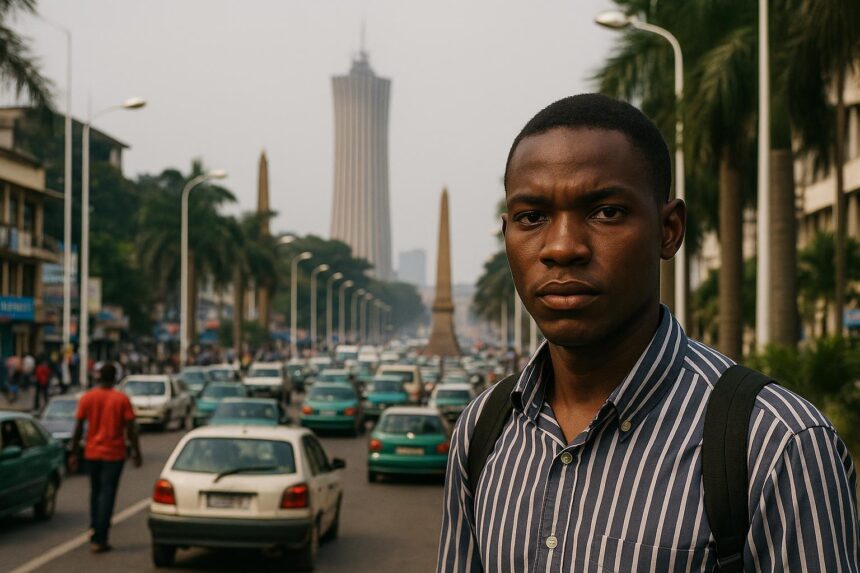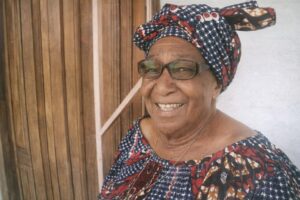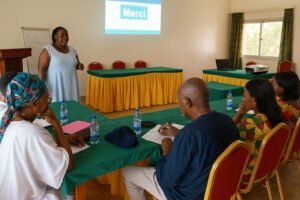Why sanitation matters in Brazzaville
Every rainy season, plastic bags and food scraps block the Mfoa drains, forcing families to wade through murky water. Health workers link those puddles to spikes in malaria, typhoid and diarrhoea. Officials now say poor waste management fuels up to one in five clinic visits.
The capital’s population has doubled in twenty years, outpacing waste trucks and legal dumping sites. Informal settlements sprawl near rivers, leaving households to burn rubbish or tip it roadside. Doctors warn that smoke and stagnant water together form a hidden tax on public health.
Inside the 2025-2035 national plan
Unveiled on 15 October 2025, the sanitation blueprint sets a clear headline target: cut morbidity linked to insalubrity by “a significant margin” within six years, and consolidate results by 2035. The document draws on proposals from district mayors, neighbourhood chiefs and private operators.
Measures range from doubling collection points to introducing coloured bins for sorting. A legal package is due in Parliament next session to clarify household duties, contractor licences and penalties for illegal dumping. Authorities also promise a real-time mobile map showing pick-up schedules street by street.
The government insists the plan is more than cosmetic. New drainage channels are slated for Marché Total and Makélékélé; compost stations will transform organic waste into fertiliser for peri-urban farms. Officials expect the circular approach to create at least 3,000 local jobs by 2028.
Financial backing from global partners
Although the overall budget remains confidential, the Ministry of Urban Sanitation cites technical and financial pledges from UNICEF and the African Development Bank. UNICEF will focus on hygiene education campaigns in schools, while the AfDB offers concessional loans for waste-to-energy pilots on the outskirts of the city.
A senior AfDB analyst in Brazzaville explains that modern incinerators could convert 70 % of the capital’s daily waste into electricity, easing the grid at peak hours. Preliminary feasibility studies begin in January, with community consultations scheduled before any ground is broken.
Minister Mondelé’s health-first doctrine
“Sanitation is the foundation of wellbeing,” stresses Minister Juste Désiré Mondelé, arguing that cleaner streets underpin productivity and tourist appeal alike. He rejects the notion that waste is a municipal afterthought, framing it instead as a public-health investment with long-term returns.
Mondelé says the new regulations will align with the National Development Plan and the President’s vision of an ‘Emerging Congo’. By coupling infrastructure with civic education, he hopes to shift mind-sets: “We pick up litter today, but we also teach children not to throw it tomorrow,” he notes.
Residents welcome cleaner streets
Market vendor Reine Mavoungou remembers losing two workdays last year after her son caught dysentery. She hopes the promised latrines near Ouenzé bus terminus will spare other parents. “If the taps and bins come, we can spend money on schoolbooks instead of medicine,” she says.
Taxi driver Hervé Ngakala is optimistic about the job prospects. The plan earmarks thousands of positions for waste sorters and drainage maintenance. “Young people need steady pay,” he remarks. “Sweeping avenues is honest work, and a smart phone app could tell us where we’re needed next.”
Roadmap for the next six years
The ministry has set quarterly milestones to track streets cleaned, drains cleared and infection rates. Baseline epidemiological surveys start this December, with progress reports due every June. Independent auditors from local universities will verify figures to maintain public trust.
Officials emphasise that behaviour change underpins the timetable. School curricula will include simple hand-washing science; community radio jingles will remind listeners of collection hours. Faith leaders are enlisted to promote clean-up days after services, blending civic duty with cultural rhythm.
By 2031, authorities aim for visible impact: fewer plastic clogs in the Tsiémé River, shorter queues at fever clinics and pavements safe enough for night-time strolls. As Mondelé puts it, “Clean cities heal bodies and lift spirits.” Residents across Brazzaville are now watching, broom in hand, to see the promise turn into daily reality.






















